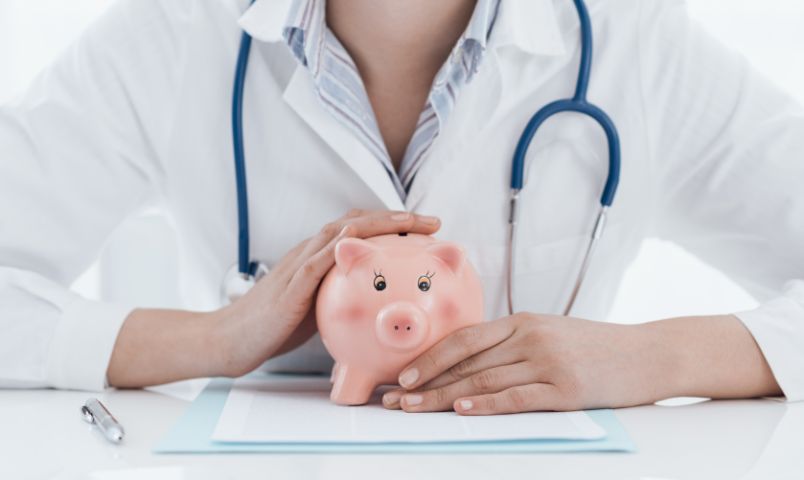Foods to Avoid If You Have IBS for Better Digestion
Foods to Avoid If You Have IBS for Better Digestion

Irritable Bowel Syndrome (IBS) is a common, chronic condition that causes discomfort in the lower gastrointestinal tract. It can be managed properly with a proper diet and a healthy lifestyle. Bloating, abdominal pain, gastric issues and irregular bowel movements are the common symptoms of IBS.
While IBS has no cure, its symptoms can be managed by avoiding trigger foods. Read on to learn which foods to avoid when experiencing IBS symptoms.
Foods to Avoid If You Have IBS
Certain foods can worsen IBS symptoms, so knowing what to avoid is key to managing the condition effectively.
• Milk and Dairy Products
Milk and high-fat dairy products can trigger IBS symptoms and lead to diarrhoea. These dairy products contain lactose, an ingredient that causes bloating and gas. Lactose intolerance is quite common among people with IBS.
• Insoluble fibres
Usually found in large quantities in whole grains and vegetables, insoluble fibres can cause digestion issues. Always talk with your doctor and avoid these food triggers to control your IBS symptoms.
• Gluten
Gluten-rich foods like rye, wheat and barley should be avoided as they can lead to diarrhoea.
• Fried and Processed Foods
These contain fats, sugars, additives and a lot of salt, thereby leading to digestion issues in people with IBS symptoms.
• Beans and Legumes
Though they contain many nutrients, people with IBS need to avoid them. Oligosaccharides found in beans and legumes can lead to constipation and digestion issues.
• Caffeinated and Carbonated Beverages
Caffeine-based drinks can trigger diarrhoea, whereas carbonated beverages can cause issues in the gastrointestinal tract, complicating the IBS symptoms further.
• Artificial sweeteners, sugar-free options and chocolate
Eating sugar-free foods can trigger your IBS symptoms because these foods contain artificial sweeteners that can damage your digestive system. Since it is high in sugar, chocolates also should be avoided if you have IBS, as it can cause inflammations in your stomach.
• Alcohol
Overconsumption of alcohol can lead to dehydration, eventually affecting the digestive system. Some drinks are rich in sugar, while some are rich in gluten. Hence, you should quit drinking alcohol when you have IBS.
Some other foods to avoid if you have IBS are garlic, onions and cruciferous vegetables like cauliflower, broccoli, etc. All these can trigger your IBS symptoms and impact your digestion.
Conclusion
When you are diagnosed with IBS, you should immediately bring about a few healthy changes in your daily diet. Avoid dairy products, artificial sweeteners, processed foods and carbonated beverages to keep your digestive system healthy and manage your IBS symptoms effectively. As a preventive measure, invest in a health insurance policy or critical illness insurance to take care of the costs involved in your IBS treatment when you seek medical help.
Disclaimer: The above information is for illustrative purposes only. For more details, please refer to the policy wordings and prospectus before concluding the sales.
RELATED ARTICLES
A Complete Guide to Understanding Irritable Bowel Syndrome
Yoga for Preventing Diseases: How Yoga Can Help Combat Health Issues?
Symptoms of Gastritis: Signs You Shouldn’t Ignore
Go Vegan! And Save Yourself From 8 Diseases & It's Complications
De-worming Is Important for Adults and Children










 Health Insurance
Health Insurance  Travel Insurance
Travel Insurance  Car Insurance
Car Insurance  Cyber Insurance
Cyber Insurance  Critical Illness Insurance
Critical Illness Insurance
 Pet Insurance
Pet Insurance
 Bike/Two Wheeler Insurance
Bike/Two Wheeler Insurance  Home Insurance
Home Insurance  Third Party Vehicle Ins.
Third Party Vehicle Ins.  Tractor Insurance
Tractor Insurance  Goods Carrying Vehicle Ins.
Goods Carrying Vehicle Ins.  Passenger Carrying Vehicle Ins.
Passenger Carrying Vehicle Ins.  Compulsory Personal Accident Insurance
Compulsory Personal Accident Insurance  Travel Insurance
Travel Insurance  Rural
Rural 











